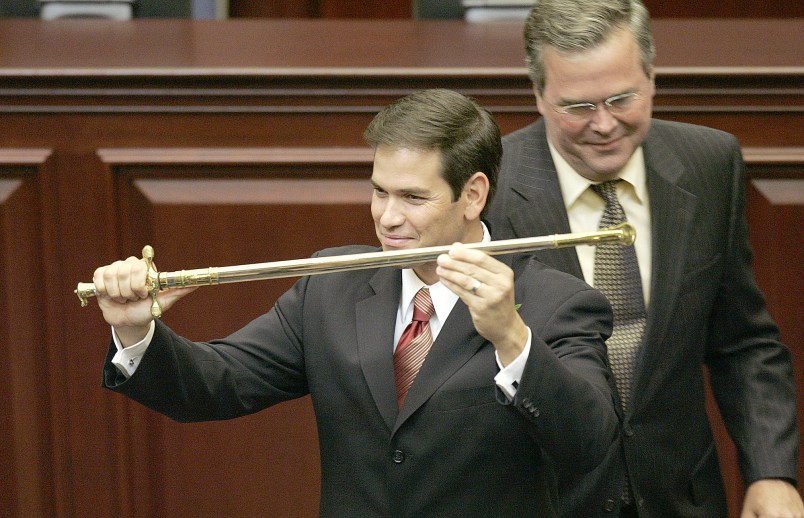I have a Republican friend – semi-retired from the political business – who frequently notes that the GOP has never had a reckoning with the Iraq War, no process akin to the years long angst and struggle the Democrats had over the decision-making and consequences of the Vietnam War. Last week it seemed like that long delayed process was coming about suddenly – hinged around the fumbling candidacy of former President Bush’s brother and his own efforts to come up with a position on the war. But we can see from yesterday that it won’t be nearly that easy or so quick.
As we noted last week, in a small but revealing fib, Marco Rubio claimed that in saying that the Iraq War was a mistake, he was doing no more than repeating what the ultimate Iraq War supporter, President Bush, had himself said. That wasn’t true. Bush never said anything like that. But Rubio felt he needed that cover to get in line with what seemed to be this rapidly emerging consensus.
When pressed on the matter this weekend by Fox News’ Chris Wallace of all people, Rubio struggled to keep his story straight. He didn’t succeed. He tried to keep the two questions distinct – ‘what we knew then’ and ‘what we knew now’ – and wasn’t able to. Under pressure, at another moment, he fell back on the ‘world is safer without Saddam’ line that Bush himself still uses.
I’m not convinced that Rubio is the pack leader in rapid-fire cognitive work. But whatever his shortcomings, this points to a deeper issue. If the Iraq War was a mistake it was a mistake of gargantuan proportions. It went on for roughly a decade and in some ways continues. Thousands of Americans were killed. Hundreds of thousands of Iraqis died if you figure in the costs of the insurgency, the invasion and various collateral effects of both. And it is difficult to argue that its effects weren’t largely or entirely negative or even terrible.
If it was a mistake, why did it happen? How do we avoid future mistakes like it? Where are the architects of the war now? Mainly advising Jeb Bush. Who’s angling to the support of the neoconservative wing of the Republican party? That would be Marco Rubio.
It’s not quite a mulligan the Republican presidentials are after. But they do want to find a way to get on the right side of public opinion on the issue and yet not deal with any of the questions that realization inevitably brings with it. That leads to inevitable and awkward word play to avoid the obvious. See this morning’s column by former Bush speechwriter and neoconservative column warrior Marc Theissen advising Jeb Bush to simply stop talking about the invasion because it doesn’t matter. “Forget 2003. Jeb Bush should focus on today’s Iraq.”
Just stop talking about it! No one cares. We’ve got other new wars that are better!
As my friend always tells me. There’s never been a reckoning or any effort to come to grips with what’s happened. When it happens it won’t be pretty. And now that it is, it’s not.






